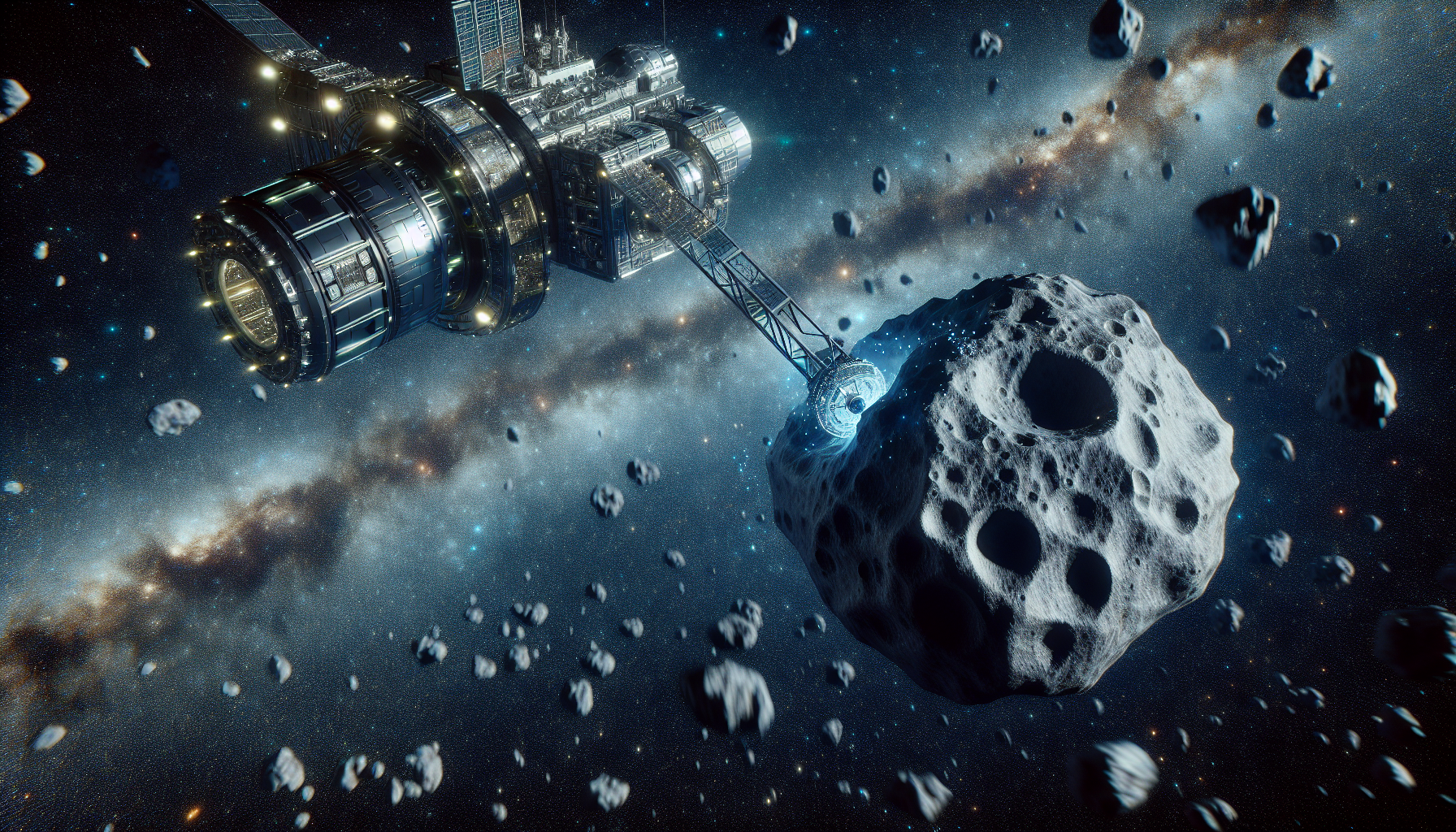Asteroid mining is rapidly transitioning from a speculative concept to a tangible endeavor, thanks to significant technological advancements. Researchers at the University of Leicester have developed a method utilizing deep eutectic solvents (DES) to efficiently extract metals from meteorite samples, serving as proxies for metal-rich asteroids. This innovative approach could drastically enhance the feasibility of mining asteroids for valuable metals like iron, nickel, and platinum. The DES method not only offers a more efficient extraction process but also aligns with sustainable practices, as these solvents can be engineered to have low vapor pressures and could potentially be synthesized from organic waste products in space settlements. This development marks a significant milestone in making asteroid mining a practical component of future space exploration and resource utilization. beyondearthmining.com
The implications of successful asteroid mining are profound, extending beyond economic benefits to encompass environmental and technological advancements. Asteroids are rich in metals and water, the latter of which can be converted into hydrogen and oxygen to produce rocket fuel, thereby supporting sustainable space missions. This capability could reduce the reliance on Earth-based resources and minimize the environmental impact associated with traditional mining practices. Moreover, the extraction of rare earth elements from asteroids could alleviate the scarcity of these materials on Earth, supporting the growing demand for electronics and renewable energy technologies. As the space mining industry continues to evolve, it is essential to address legal, ethical, and environmental considerations to ensure responsible and equitable utilization of extraterrestrial resources. scimag.news
Key Takeaways
- University of Leicester researchers have developed a method using deep eutectic solvents to extract metals from meteorite samples.
- Asteroid mining could provide valuable metals and water, supporting sustainable space missions.
- Extracting rare earth elements from asteroids may alleviate Earth's resource scarcity.
- Addressing legal and ethical considerations is crucial for responsible space mining.
- Advancements in space mining technologies are making asteroid resource extraction more feasible.
